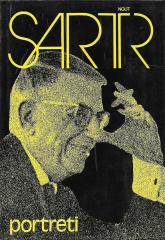
Politički liberalizam
Džon Rols, osnivač modernog liberalizma, nudi putokaz za stabilno društvo: „Politički liberalizam“, nastavak klasične „Teorije pravde“, nije samo filozofski traktat, već praktični model za pluralistička društva poput našeg.
U ovoj knjizi, Rols odgovara na kritike da je njegova vizija pravde previše „sveobuhvatna“, uvodeći politički liberalizam – usko, neutralno shvatanje pravde koje se fokusira samo na osnovne institucije, a ne na celinu života. Tako, teorija pravde dobija podršku kroz „preklapajući konsenzus“ razumnih doktrina: religija, filozofija i nauka mogu koegzistirati bez nametanja jedne istine, pod „velom neznanja“ gde biramo principe (slobodu, jednakost, razliku) bez predrasuda.
Ključni koncept je „izvorni položaj“: hipotetičko stanje jednakih pojedinaca koji grade pravdu na autonomiji i toleranciji, rešavajući „buržoaski problem“ – kako osigurati lojalnost u podeljenim društvima? Rolsov odgovor je: javni razum, obrazovanje za ideale i ograničenu većinu. Rols kritikuje fundamentalizam i utopije, zalažući se za proceduralnu pravdu gde institucije štite slobode, a ne opterećuju savest. Hrvatski prevod Filipa Grgića, sa predgovorom Miomira Matulovića, idealan je uvod u savremeni liberalizam – za filozofe, političare i svakoga ko sanja o pravednom društvu.
Jedan primerak je u ponudi




